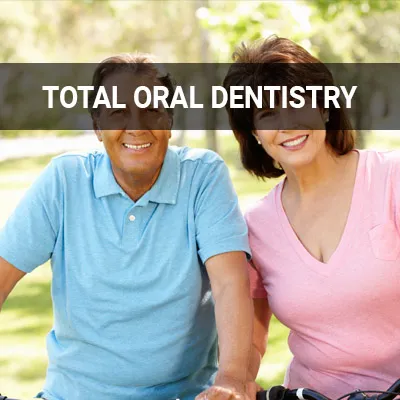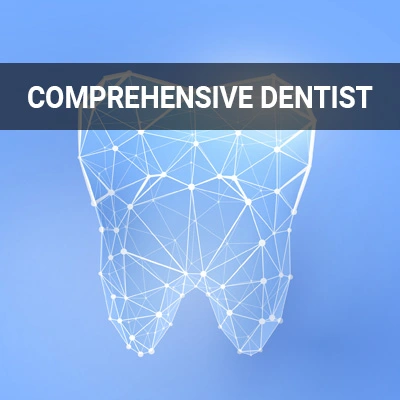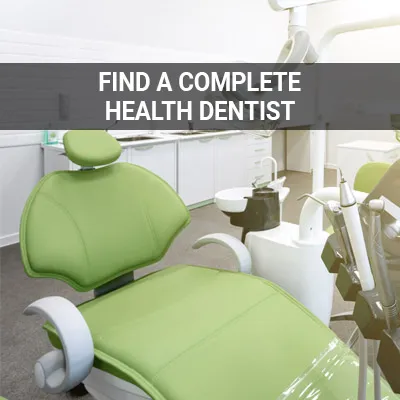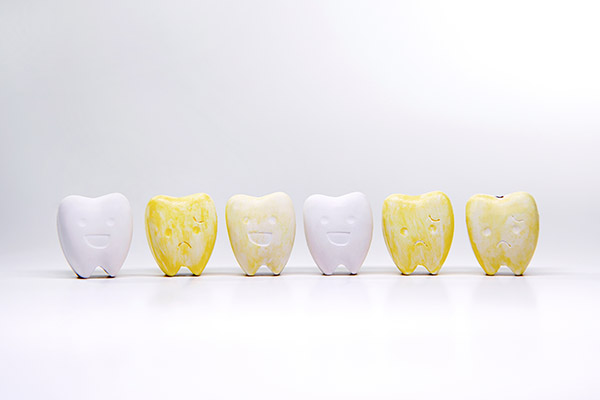Selecting a Total Health Dentist McKinney, TX
Poor oral health is often indicative of health problems elsewhere in the body (and vice versa). Unfortunately, many conventional dentists treat isolated conditions instead of addressing the root causes. If you are looking for a more integrative approach to oral healthcare, you may want to choose a total health dentist as your primary dental care provider.
Total health dentistry is available at Sam Patel DDS, PA in McKinney and the surrounding area. Our team knows how to keep a close eye on the oral-systemic link to ensure your overall health. Call us today at (972) 638-5848 to schedule an appointment or to learn more about our services.
Benefits of Total Health Dentistry
Total health dentists vary from traditional dentists in that they work collaboratively with their patients. Typically, patients go in to see the dentist on an "as-needed" basis. They usually do not receive any basic education on their condition, how it manifested, what other health issues it may be indicative of, and how to address its root causes. Total health dentists deal with all of this and more.
Total health dentists see the patient first, not just the condition. This is crucial since, according to Mayo Clinic, dental health is frequently reflective of overall health. Since the mouth acts as an entryway into the digestive and respiratory tracts, it is also a natural breeding ground for bacteria. While most bacteria are harmless and kept at bay by the body's natural defenses, poor oral hygiene practices may cause the bacteria to multiply at dangerously high levels, leading to several different oral infections.
“Total health dentists see the patient first, not just the condition.”
Total Health Dentistry and Insurance
Many patients hesitate to try out total health dentistry because of insurance concerns. Fortunately, however, many practices are covered by various health coverage plans. Just as with typical dentists, total health dental exams and cleanings may be covered without any out-of-pocket costs. Cosmetic and restorative treatments, however, may fall outside of insurance coverage.
While dental coverage is considered an essential health benefit for children, it is not considered essential for adults. In other words, all children with health insurance will have dental coverage, but adults may not. All insurance plans are different, so it is important for patients to confirm their coverage with their provider before making any plans.
“Just as with typical dentists, total health dental exams and cleanings may be covered without any out-of-pocket costs.”
Understanding Total Health Dentistry
Unlike traditional dentists, who tend to treat patients as passive recipients of care, total health dentists work collaboratively with their clients to set realistic goals and improve overall health. By providing the patient with a basic education of the state of their oral health, total health dentists empower individuals to make informed choices about their care.
To get the full benefits of their care, patients must shift their view of dentistry as something they seek on an "as-needed" basis and realize instead that it is a vital part of maintenance care. The oral-systemic connection means that proper dental care is an integral part of preventative health.
“By providing the patient with a basic education of the state of their oral health, total health dentists empower individuals to make informed choices about their care.”
Check out what others are saying about our dental services on Yelp: Selecting a Total Health Dentist in McKinney, TX
Total Health Dentistry and Inter-Provider Communication
As we have already established, the oral-systemic link necessitates that doctors treat patients' health from a more integrative standpoint. To see the best results from total health dentistry, an individual's healthcare providers must keep in communication with each other. It is rare for primary care providers to ask patients about their oral health, making it all too easy for certain signs of disease to be overlooked.
Additionally, several conditions exist bidirectionally with oral health. In other words, treating one can also effectively treat the other. Thus, it is imperative that all healthcare providers have an integrative understanding of the patient's conditions and adjust each treatment plan accordingly. We can work together with each patient's medical team to formulate the best plan for their unique needs.
“To see the best results from total health dentistry, an individual’s healthcare providers must keep in communication with each other.”
Questions Answered on This Page
Q. What can a total health dentist do for me?
Q. Does insurance cover total health dentistry?
Q. What is the difference between traditional dentists and total health dentists?
People Also Ask
Q. How is a total oral dentist different from a regular dentist?
Q. How does pH level affect a person's oral health?
Q. How do lifestyle choices affect oral hygiene?
Q. Why is preventative care important? How can it save you money?
Ideal Candidates for Total Health Dentistry
Though total health dentistry can help virtually anybody, some patients may benefit more than others. Typically, these involve those with chronic conditions. Just as severe gum disease (also known as periodontitis) may be correlated to various systemic conditions, several chronic diseases may lower the body's resistance to infection. In either case, oral health conditions may be more easily aggravated and common.
According to multiple studies, there is a strong correlation between periodontal disease and various heart conditions, such as coronary heart disease and myocardial infarction. Other systemic conditions correlated with oral health include, but are not limited to, diabetes, osteoporosis, and more. Often, the symptoms of periodontitis are not obvious until it has already progressed. Keeping regular appointments with a total health dentist can help ensure that patients are staying in good health.
Frequently Asked Questions
Q. What are some of the risk factors for periodontal disease?
A. Many of the risk factors for periodontal disease are lifestyle-related, such as tobacco use, excessive alcohol consumption, and poor nutrition. Other risk factors include age, genetics, medications, stress, and teeth grinding. Every patient has a unique risk profile. We can help you work through yours.
Q. What causes periodontal disease?
A. Usually, periodontitis starts with an excess buildup of plaque. Once this plaque has hardened under the gumline, it turns into tartar and develops into a mild form of gum disease known as gingivitis. When left untreated, this gum inflammation eventually leads to periodontitis.
Q. How can I maintain my oral health at home?
A. Although nothing can replace the professional skills of a total health dentist, practicing good oral hygiene can be simple. Brush your teeth at least twice daily with a fluoride toothpaste. Floss once a day to remove dental plaque, and drink fluoridated water. If you use tobacco products, quit immediately. Remember to see a dentist regularly, and jot down any concerns you want to discuss.
Q. What is the proper way to brush your teeth?
A. Over- or under-brushing can both have detrimental effects on your oral health. Proper tooth brushing technique involves holding the brush at a slight angle, aiming the bristles towards the convergence between teeth and gums. Use short, circular back-and-forth motions to gently brush the outside, inside, and chewing surfaces of your teeth, as well as the tongue.
Q. Why do complete health dentists focus on patient education?
A. Without a basic understanding of the conditions that affect them, many patients may feel confused and intimidated within the healthcare system. They may feel like they are simply having treatments inflicted upon them rather than participating in their own recovery. Our goal is to empower our patients to make informed choices about their own care.
Dental Terminology
Call Us Today
Total health dentists see you as a patient first, not just as a condition. At Sam Patel DDS, PA, we will take the time to understand how your unique lifestyle affects your oral and overall health. Call us today at 972-638-5848 to schedule an appointment or to learn more about our services.
Helpful Related Links
- American Dental Association (ADA). Glossary of Dental Clinical Terms. 2023
About our business, license, and website security
- Sam Patel DDS, PA was established in 2006.
- We accept the following payment methods: Cash, Check, Discover, MasterCard, and Visa
- We serve patients from the following counties: Collin County , Grayson County, Denton County, and Fannin County
- We serve patients from the following cities: McKinney, Frisco, Plano, Allen, Wylie, Richardson, Garland, Rowlett, Lewisville, and Carrollton
- TX (License #20595). View License Information and Specifics
- National Provider Identifier Database (1740286012). View NPI Registry Information
- Healthgrades. View Background Information and Reviews
- Norton Safe Web. View Details
- Trend Micro Site Safety Center. View Details
Back to top of Selecting a Total Health Dentist










